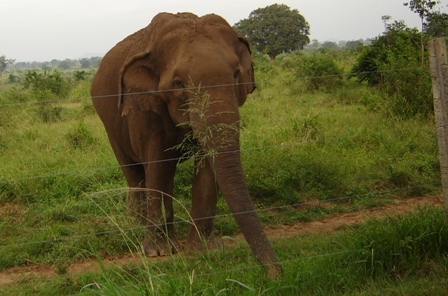
In Sri Lanka, our study site at Kataragama is 288Km away from our main lab in University of Colombo, Faculty of Medicine. For our Consortial Project 2 study we were planning to collect more than 1500 blood samples from people who resided in the area 15 years ago. Though the number of malaria cases in this area has declined remarkably it was considered a malaria endemic area before 2003 when as many as 40-50 patients were diagnosed as malaria positive per day. Our plan was to collect blood samples, extract DNA, get serum and compare the genetic data/antibody levels with the existing clinical data we had in our database.
Tracing study participants
Our biggest challenge was to find the exact people from our database in order to take blood samples. We made a house to house visit in each village, inquiring about the family members, their ages and relationships with other family members. In our search we found that some people had passed away or moved away to find new jobs, get married etc. For some families no-one knew their whereabouts. Some went to work in their paddy fields in the midst of jungle during the day and only returned to their houses after dark. It was often difficult to reach these houses as wild elephants freely roamed in these jungle pathways after dark! In the end we managed to trace over 1200 samples from this population.
Setting up a local laboratory
In Kataragama, there is a small laboratory and a research centre set up for the basic examination of samples, e.g. the microscopic examination of blood smears for malaria. Since it was too far to transfer samples directly to the lab in Colombo our first task was to convert this lab into a convenient place for storing blood samples and separating serum. A centrifuge, freezer and refrigerator were installed.
Transferring the samples to Colombo
Keeping the samples under freezing temperature for the transfer to Colombo was a challenge. It’s not possible to obtain dry ice in rural areas so we had to keep the samples in a carrier full of sufficient frozen ice packs for the 6 hour journey! At our main lab, the serum samples were stored separately, blood samples were processed and DNA extracted.

